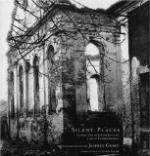“Little Father,” said he at last, “you and I are old men. Our blood is cool. We do not act quickly. But other men are young. Their blood is hot and swift, and it is quick to bring them spirit-thoughts[4]. They say you have made the wind, kee-way-din, the north wind, to blow so that we can have no game. They say you conjured Crooked Nose so that he brought back no caribou, although he came very near it. They say, too, that you seek a red man to do him a harm, and their hearts are evil toward you on that account. They say you have made the power of the old-men as nothing, for what they commanded you denied when you brought our little sister in your canoe. I know nothing of these things, except the last, which was foolishness in the doing,” the old man glanced sharply at Dick, puffed on his nearly extinguished pipe until it was well alight, and went on. “My brothers say they are looking places for winter posts; I believe them. They say their hearts are kind toward my people; I believe them. Kee-way-din, the north wind, has many times before blown up the river, and Crooked Nose is a fool. My heart is good toward you, but it is not the heart of my young men. They murmur and threaten. Here our trails fork. My brothers must go now their own way.”
[Footnote 4: Fancies.]
“Good,” replied Sam, after a moment. “I am glad my brother’s heart is good toward me, and I know what young men are. We will go. Tell your young men.”
An expression of relief overspread Haukemah’s face. Evidently the crisis had been more grave than he had acknowledged. He thrust his hand inside his loose capote and brought forth a small bundle.
“Moccasins,” said he.
Sam looked them over. They were serviceable, strong deerskin, with high tops of white linen cloth procured at the Factory, without decoration save for a slender line of silk about the tongue. Something approaching a smile flickered over old Haukemah’s countenance as he fished out of his side pocket another pair.
“For Eagle-eye,” he said, handing them to Dick. The young man had gained the sobriquet, not because of any remarkable clarity of vision, but from the peculiar aquiline effect of his narrow gaze.
The body of the moccasins were made of buckskin as soft as silk, smoked to a rich umber. The tops were of fawnskin, tanned to milky white. Where the two parts joined, the edges had been allowed to fall half over the foot in an exaggerated welt, lined brilliantly with scarlet silk. The ornamentation was heavy and elaborate. Such moccasins often consume, in the fashioning, the idle hours of months. The Indian girl carries them with her everywhere, as her more civilised sister carries an embroidery frame. On dress occasions in the Far North a man’s standing with his womenkind can be accurately gauged by the magnificence of his foot-gear.
“The gift of May-may-gwan,” explained Haukemah.
“Well, I’ll be damned!” said Dick, in English.




